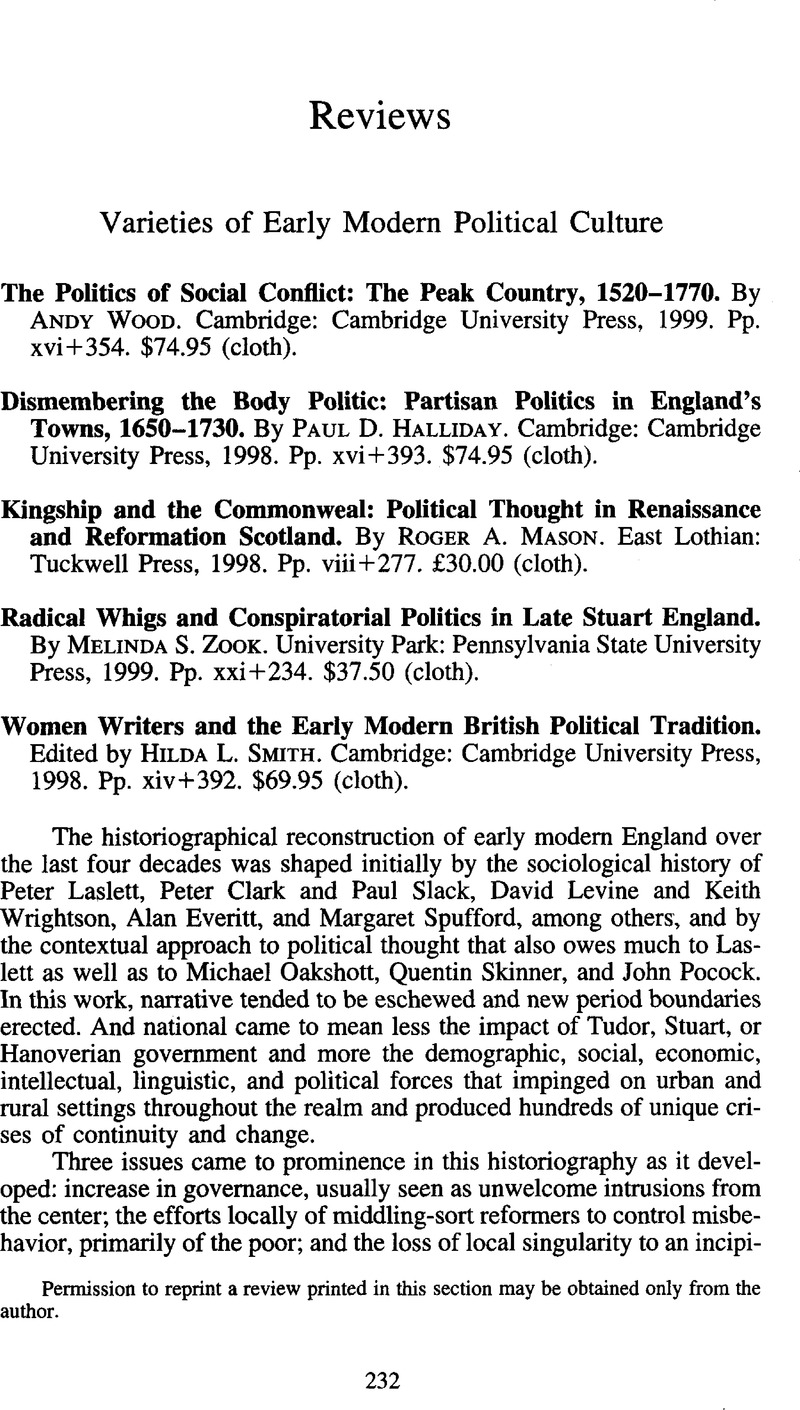No CrossRef data available.
Published online by Cambridge University Press: 10 May 2013

1 Wood is much in agreement with Wrightson, though, in pursuing the political in local settings. See Wrightson, Keith, “The Politics of the Parish in Early Modern England,” in The Experience of Authority in Early Modern England, ed. Griffiths, Paul, Fox, Adam, and Hindle, Steve (Basingstoke, 1996), pp. 10–46CrossRefGoogle Scholar.
2 Jones, Gareth Steadman, Languages of Class: Studies in English Working Class History, 1832–1982 (Cambridge, 1983)Google Scholar, chap. 1; and Thompson, E. P., The Making of the English Working Class (New York, 1963)Google Scholar, preface, chaps. 8 and 14.
3 Smith, Anthony D., National Identity (Harmondsworth, 1991)Google Scholar, The Ethnic Origins of Nations (Oxford, 1986)Google Scholar, and The Ethnic Revival (London, 1981)Google Scholar. See also Williamson, Arthur H., Scottish National Consciousness in the Age of James VI (Edinburgh, 1979)Google Scholar.
4 Editor's introduction to James VI and I, Political Writings, ed. Sommerville, Johann P. (Cambridge, 1994), p. xvGoogle Scholar; and Christianson, Paul, “Royal and Parliamentary Voices on the Ancient Constitution, c. 1604–21,” in The Mental World of the Jacobean Court, ed. Peck, Linda Levy (Cambridge, 1991), p. 76Google Scholar.
5 Editor's introduction to Locke, John, Two Treatises of Government, ed. Laslett, Peter (Cambridge, 1960)Google Scholar.
6 Pederson, Susan, “The Future of Feminist History,” AHA Perspectives 38, no. 7 (October 2000): 20Google Scholar.
7 Wollstonecraft's stance is not unlike Seyla Benhabib's defense of postenlightenment universalism, alert to contexts and gender differences. See her Situating the Self: Gender, Community and Postmodernism in Contemporary Ethics (New York, 1992)Google Scholar.
8 See Pateman, Carol, The Sexual Contract (Stanford, Calif., 1988)Google Scholar.